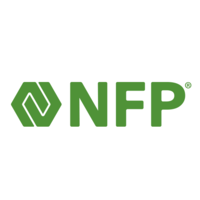Securing More Construction Financing: NFP's Peet Poillon At Bisnow’s Charlotte Event

While there is $7B in the Charlotte construction pipeline in Uptown and South End alone, that may not be enough to meet the booming demand in North Carolina’s biggest city.
Supply chain disruptions and inflation continue to delay timelines, causing increased construction costs, and permits issued for projects have decreased.
“While the construction industry has plenty of work in the pipeline, it’s getting increasingly difficult to execute specific projects from a lending standpoint,” said Peet Poillon, senior adviser at NFP, an insurance and benefits coverage firm. “Rising construction costs are also making it harder for deals to pencil despite the demand.”
Poillon attended Bisnow’s Charlotte Construction and Development Outlook event on July 13 at Omni Charlotte Hotel, where NFP Managing Director Evan Taylor moderated a panel titled the Impact of Construction Financing on Development Pipelines. Taylor joined other speakers in discussing strategies for area construction companies to secure more financing.
Bisnow spoke to Poillon about the state of the Charlotte market, some of the construction and development challenges in the city and what NFP is doing to help local construction companies move forward.
Bisnow: How would you describe the state of construction and development in Charlotte?
Poillon: It’s still a busy environment with tons of work to be done. The attraction to this area continues to grow, with people and businesses flocking to Charlotte at historical rates. These trends are driving construction and development in the city. There’s also a housing crisis — both in Charlotte and nationwide — which opens up the demand for more multifamily and affordable housing developments.
Our general contractor clients typically have very healthy pipelines, but lending continues to be a concern, particularly for larger projects. Lenders are requiring developers to have more equity upfront and are more specific on the types of projects they want to get involved with.
Bisnow: What inspired you to sign up to attend Bisnow’s Charlotte Construction and Development Outlook event?
Poillon: The CRE and development community in Charlotte is special. Although it’s a competitive scene, most want to collaborate to create a unified vision for Charlotte. At NFP, we want to continue to build relationships with local companies to better understand their pain points and what they are having success with. We want to find the best way to serve our tight-knit community and continue to be a part of its evolution.
Bisnow: Can you describe your role at NFP and some of the ways you help construction companies with their projects?
Poillon: I take a consultative role, educating companies on how they should assess their risk. We are here to act as an outsourced risk management team. We help our clients solve problems, transfer risk and protect their balance sheets in the most efficient way possible.
This starts with a risk assessment, a conversation and usually leads to executing different types of insurance products, including a master property policy with all properties in a given portfolio, a builder’s risk policy, or creating owner-controlled insurance programs and contractor-controlled insurance programs.
Loss control and safety are paramount in being able to transfer risk efficiently. We walk companies through different mechanisms available to keep employees safe and drive down premiums on all lines of coverage.
Bisnow: What are some of the challenges of securing capital for construction projects in Charlotte?
Poillon: The biggest pain point I’m seeing is the ability to make a deal profitable with the current lending environment and cost of construction. When we were dealing with historically low interest rates, it was less of a fight to secure debt. Now, if you aren’t willing or capable of putting more equity in on the front end, new lender guidelines have made it challenging or the deal doesn’t become as profitable because the debt costs significantly more.
Bisnow: With supply chain issues still delaying projects, how should construction companies adjust when setting development pipelines?
Poillon: I think it all starts with the contracts between the developers, general contractors, subcontractors and vendors. While we’re not seeing as many supply chain issues as we did a year ago, they’re still there and can slow down the building process. It’s vital that you have contingencies within contracts that reflect how things might change. Underwriting has to account for any changes that may affect the project.
Clear communication on expectations regarding the different variables involved becomes a very important part of the process. Also, it's important to have strong relationships where both parties are willing to make concessions in the interest of making the endeavor fruitful for everyone.
Bisnow: How does NFP continue to adapt to the changes in the market and provide construction companies with services to help them better approach risk management?
Poillon: In a hard property insurance market, there are tougher underwriting guidelines from insurance carriers. Capacity — how much they are willing to insure — is a big issue on specific types of exposures. We focus on strategic relationships with carriers and arming our clients with tools that allow the risk to be viewed more favorably by the carrier. That may mean implementing specific loss-control and safety practices within their company and improving the asset class, construction type or geographical location they have traditionally targeted.
This article was produced in collaboration between Studio B and NFP. Bisnow news staff was not involved in the production of this content.
Studio B is Bisnow’s in-house content and design studio. To learn more about how Studio B can help your team, reach out to studio@bisnow.com.

